2024
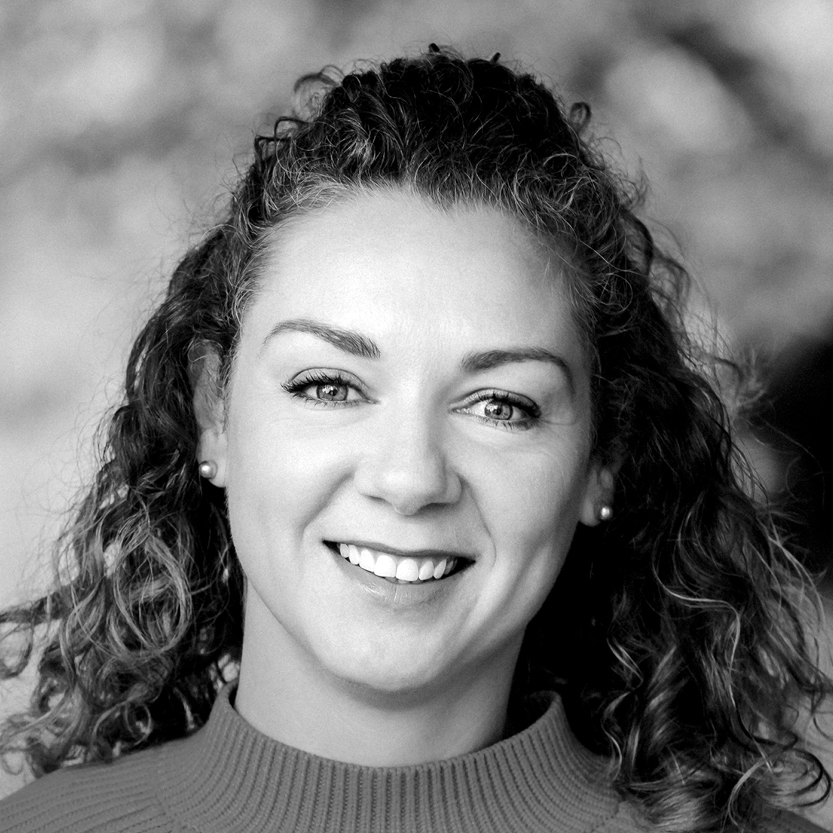
Dr Kristy DiGiacomo
2024 Winner
2024 Winner
Dr Kristy DiGiacomo is generating real-world impact in Australian animal production, improving both productivity and sustainability. Her investigation into lactating dairy goats led to Australia’s largest goat dairy changing their kid rearing and feeding regimes.
Kristy is also advancing our understanding of how to use insects as a sustainable food source for livestock animals. In this research, food waste is used to grow black soldier fly larvae, which are then harvested and processed to make an insect-based product rich in protein and fat. Kristy is assessing how incorporating this insect protein into an animal’s diet affects growth, health and meat quality.
Based at the University of Melbourne, Kristy is a senior lecturer in production animal nutrition and physiology and is a Veski sustainable agriculture fellow. She has cultivated strong research partnerships with industry and supervises numerous research students. Kristy is passionate about women’s leadership in science and is the current federal treasurer of the Australian Association of Ruminant Nutrition.
Kristy is also advancing our understanding of how to use insects as a sustainable food source for livestock animals. In this research, food waste is used to grow black soldier fly larvae, which are then harvested and processed to make an insect-based product rich in protein and fat. Kristy is assessing how incorporating this insect protein into an animal’s diet affects growth, health and meat quality.
Based at the University of Melbourne, Kristy is a senior lecturer in production animal nutrition and physiology and is a Veski sustainable agriculture fellow. She has cultivated strong research partnerships with industry and supervises numerous research students. Kristy is passionate about women’s leadership in science and is the current federal treasurer of the Australian Association of Ruminant Nutrition.

Dr Vivien Rolland
2024 Winner
2024 Winner
Dr Vivien Rolland develops state-of-the-art artificial intelligence (AI) and imaging tools to enhance the productivity and sustainability of key food, oil and fibre crops. Two of his AI imaging inventions support selection of cotton crops based on leaf hairiness, enabling a world-first ability to better breed for fibre yield and insect resistance. He has also developed a more accurate tool for monitoring wheat growth and is extending these approaches to food quality and safety.
A senior research scientist at CSIRO and leader of the Crops Digital Twin team, Vivien has an outstanding ability to transform ideas into tangible outcomes. His AI tools are being rolled out in a commercial breeding program, with further expansion of the technology to other valuable crop traits being funded by industry. Vivien won the ACT Young Tall Poppy Scientist of the Year award in 2022, and in 2023 was awarded a Nuffield Fellowship. His outreach efforts engage both the public and decision-makers with science, and he has been invited to participate in the FAO World Food Forum and the UN Committee on World Food Security as an expert on agrifood innovation.
A senior research scientist at CSIRO and leader of the Crops Digital Twin team, Vivien has an outstanding ability to transform ideas into tangible outcomes. His AI tools are being rolled out in a commercial breeding program, with further expansion of the technology to other valuable crop traits being funded by industry. Vivien won the ACT Young Tall Poppy Scientist of the Year award in 2022, and in 2023 was awarded a Nuffield Fellowship. His outreach efforts engage both the public and decision-makers with science, and he has been invited to participate in the FAO World Food Forum and the UN Committee on World Food Security as an expert on agrifood innovation.
2023
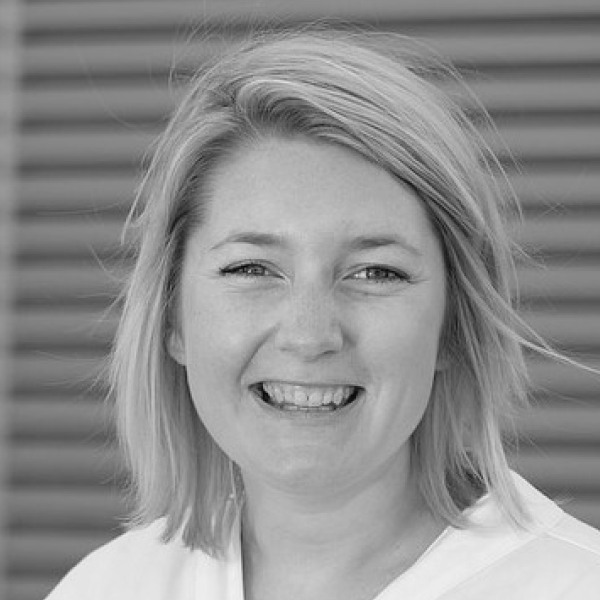
Dr Natalie Morgan
2023 Winner
2023 Winner
Dr Natalie Morgan has shaped how the poultry industry formulates diets for both egg-laying and meat chickens. Her research revealed the importance of fibre – a nutrient historically overlooked in poultry diets. Natalie developed a database of accurate fibre values to help poultry nutritionists improve accuracy when formulating feed that boosts birds’ health and productivity.
Natalie has also investigated prebiotics, carbohydrates that fuel beneficial bacteria in the gut. Fueling these good gut bacteria can enhance nutrient absorption, and Natalie has shown that prebiotics can actually reduce nutrient waste in poultry feed. Her innovative efforts have focused on making and measuring prebiotics – including from human food waste products – and how best to supplement them into poultry diets.
A leader in both academia and industry, Natalie’s portfolio extends into community engagement. She developed a training program in NSW to help unemployed young people find opportunities in the poultry industry and is a mentor to young women in STEM.
Natalie has also investigated prebiotics, carbohydrates that fuel beneficial bacteria in the gut. Fueling these good gut bacteria can enhance nutrient absorption, and Natalie has shown that prebiotics can actually reduce nutrient waste in poultry feed. Her innovative efforts have focused on making and measuring prebiotics – including from human food waste products – and how best to supplement them into poultry diets.
A leader in both academia and industry, Natalie’s portfolio extends into community engagement. She developed a training program in NSW to help unemployed young people find opportunities in the poultry industry and is a mentor to young women in STEM.
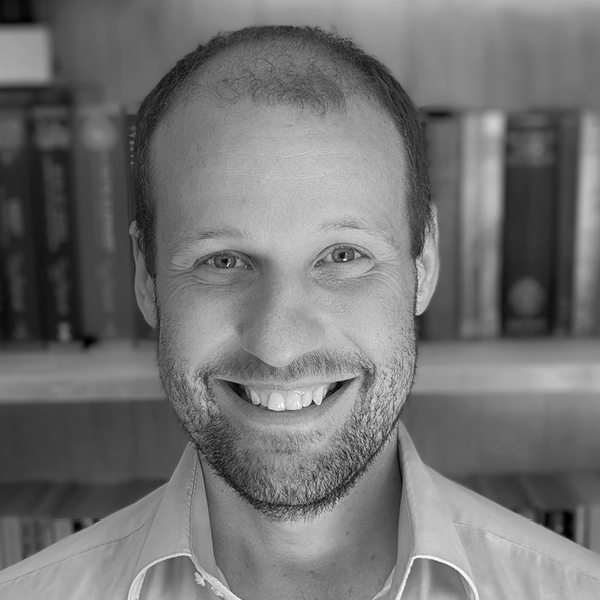
Dr Benjamin Holman
2023 Winner
2023 Winner
Dr Benjamin Holman’s award-winning work on Australian beef and lamb has cemented his place as an international leader in meat science.
Benjamin’s rigorous research has enhanced the sustainability of the beef and lamb industry. He has analysed packaging options to improve shelf life, investigated how to speed up the resource-intensive meat ageing process, and identified refrigeration and freezing storage conditions with reduced environmental footprints that still deliver quality meat.
Benjamin’s research feeds seamlessly into best-practice recommendations for farmers. For example, Benjamin’s analysis of novel livestock feed ensures that any resulting meat is safe, high quality, and rich in the nutrients needed for a balanced human diet.
Recently, Benjamin undertook a ground-breaking review of meat freshness standards, and defined a new, lower spoilage threshold for beef – the point at which beef crosses from fresh to not ideal for human consumption. The study also demonstrated that Australian beef stays fresher for longer – a finding that improves market access and boosts the international reputation of Australian meat products.
Benjamin’s rigorous research has enhanced the sustainability of the beef and lamb industry. He has analysed packaging options to improve shelf life, investigated how to speed up the resource-intensive meat ageing process, and identified refrigeration and freezing storage conditions with reduced environmental footprints that still deliver quality meat.
Benjamin’s research feeds seamlessly into best-practice recommendations for farmers. For example, Benjamin’s analysis of novel livestock feed ensures that any resulting meat is safe, high quality, and rich in the nutrients needed for a balanced human diet.
Recently, Benjamin undertook a ground-breaking review of meat freshness standards, and defined a new, lower spoilage threshold for beef – the point at which beef crosses from fresh to not ideal for human consumption. The study also demonstrated that Australian beef stays fresher for longer – a finding that improves market access and boosts the international reputation of Australian meat products.
2022
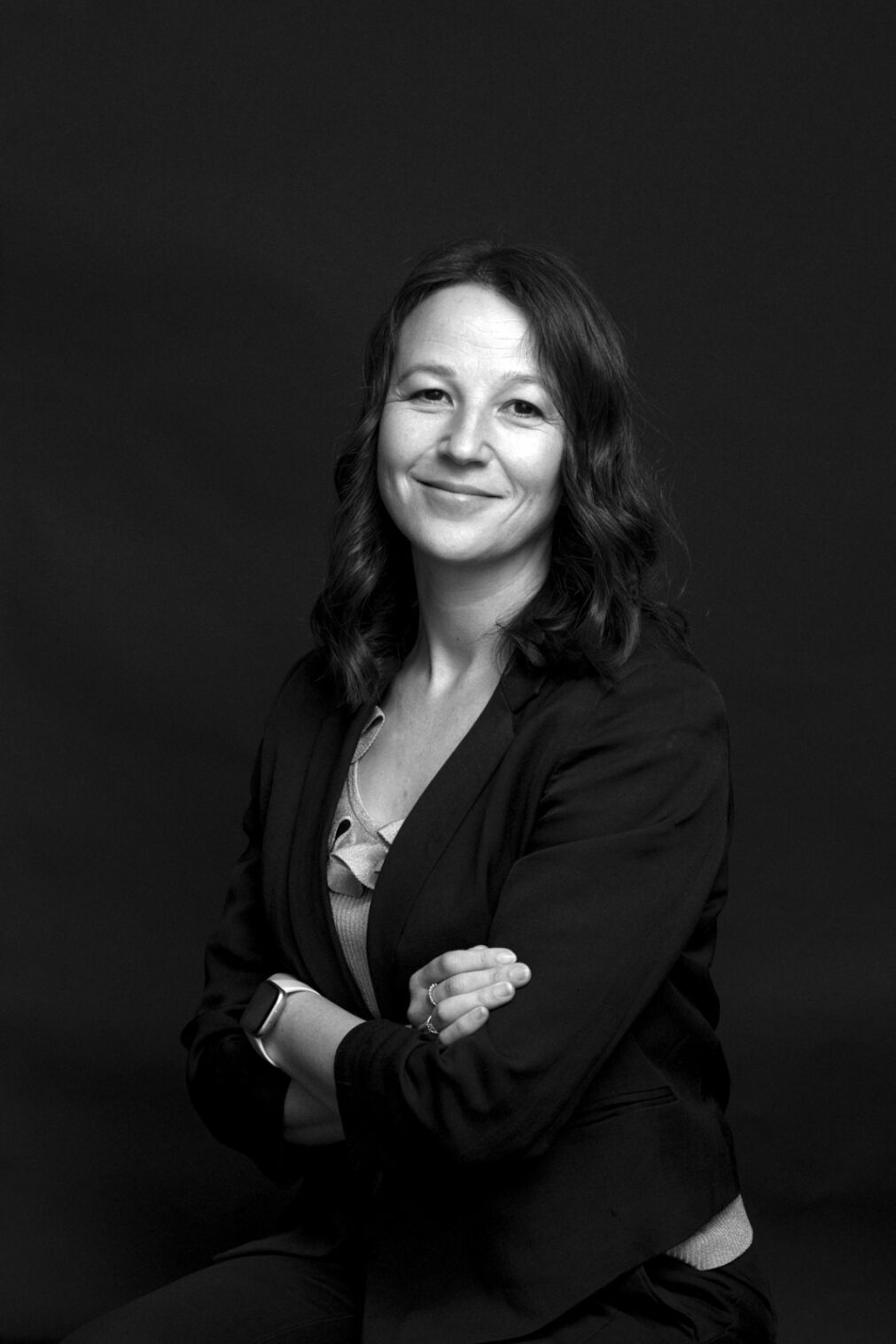
Dr Zoë Doubleday
2022 Winner
2022 Winner
Dr Zoë Doubleday has used her combined expertise in marine ecology and geochemistry to develop a method to trace the provenance of seafood. Her aim is to help combat seafood fraud and illegal fishing, practices that threaten Australia’s multi-billion-dollar seafood industry.
Seafood fraud occurs when consumers are deceived about where seafood has originated. Lesser quality seafood from areas with limited regulation is labelled falsely, enabling unsustainable fishing to flourish.
Zoë’s technology measures the chemical composition of seafood’s bones and shells. Certain chemicals are absorbed by marine animals as they develop, with levels differing depending on where the animal has lived. By comparing the seafood’s chemical composition with chemical maps of the ocean, the industry can identify the waters from which that seafood has come. This unique method can be used for many marine species.
Zoë’s work increases the integrity of the global seafood trade and provides greater confidence for consumers.
Seafood fraud occurs when consumers are deceived about where seafood has originated. Lesser quality seafood from areas with limited regulation is labelled falsely, enabling unsustainable fishing to flourish.
Zoë’s technology measures the chemical composition of seafood’s bones and shells. Certain chemicals are absorbed by marine animals as they develop, with levels differing depending on where the animal has lived. By comparing the seafood’s chemical composition with chemical maps of the ocean, the industry can identify the waters from which that seafood has come. This unique method can be used for many marine species.
Zoë’s work increases the integrity of the global seafood trade and provides greater confidence for consumers.

Dr George Chen
2022 Winner
2022 Winner
Dr George Chen is a chemical engineer specialising in membrane technology. He has led the development of several breakthrough techniques enabling the dairy industry to reduce waste and energy usage while enhancing sustainability and turnover.
One breakthrough has made milk powder production less energy intensive. Dairy powders are used in commercial baking and to manufacture chocolate, ice cream and infant milk. Australia manufactures more than 220,000 tonnes of milk powder a year. To produce the powder, however, significant energy levels have been required for water evaporation and drying.
George’s team, in collaboration with the University of Surrey, discovered that a by-product of cheese-making (salty whey) can be used instead, more efficiently concentrating milk for powder production and reducing energy use by up to 20 per cent.
Collaborating with industry, George has successfully demonstrated the technical feasibility of several new technologies at bench and pilot scale, and evaluated their financial viability.
One breakthrough has made milk powder production less energy intensive. Dairy powders are used in commercial baking and to manufacture chocolate, ice cream and infant milk. Australia manufactures more than 220,000 tonnes of milk powder a year. To produce the powder, however, significant energy levels have been required for water evaporation and drying.
George’s team, in collaboration with the University of Surrey, discovered that a by-product of cheese-making (salty whey) can be used instead, more efficiently concentrating milk for powder production and reducing energy use by up to 20 per cent.
Collaborating with industry, George has successfully demonstrated the technical feasibility of several new technologies at bench and pilot scale, and evaluated their financial viability.
2021
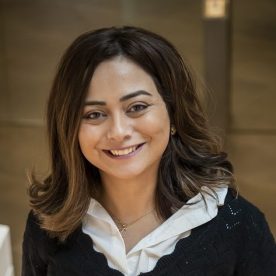
Dr Anna El-Tahchy
2021 Winner
2021 Winner
Dr Anna El-Tahchy is an innovator and respected bio-chemist who is leading efforts to revolutionise the flavour and sustainability of plant-based food.
There’s been an explosion in demand for plant-based food options in recent years but many of the new products lack flavour and an appealing mouthfeel or texture. Dr El-Tahchy has been directly involved in the establishment of Nourish Ingredients (founded by former CSIRO scientists), which has created a new science area to address this need.
Using their proprietary technology, Nourish delivers fat alternatives through the genetic manipulation of yeast strains. Using a fermentation process, these fats can be tailored to exactly match the flavour profile of beef, pork, chicken, seafood and dairy products.
Nourish Ingredients currently employs around 20 people but is growing fast with Dr El-Tahchy responsible for building its team of scientists and driving innovation and opportunities for scale, including partnering with innovative brands and leading food technology organisations to unlock the potential of the plant-based space.
There’s been an explosion in demand for plant-based food options in recent years but many of the new products lack flavour and an appealing mouthfeel or texture. Dr El-Tahchy has been directly involved in the establishment of Nourish Ingredients (founded by former CSIRO scientists), which has created a new science area to address this need.
Using their proprietary technology, Nourish delivers fat alternatives through the genetic manipulation of yeast strains. Using a fermentation process, these fats can be tailored to exactly match the flavour profile of beef, pork, chicken, seafood and dairy products.
Nourish Ingredients currently employs around 20 people but is growing fast with Dr El-Tahchy responsible for building its team of scientists and driving innovation and opportunities for scale, including partnering with innovative brands and leading food technology organisations to unlock the potential of the plant-based space.
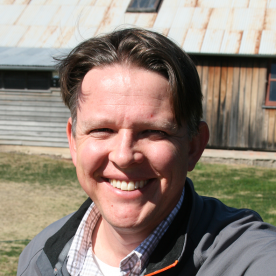
Dr Lindsay Bell
2021 Winner
2021 Winner
Dr Lindsay Bell is a world leader in farming systems research whose innovations have helped dryland crop and livestock farmers manage climate variability.
Dr Bell’s research focuses on redesigning cropping systems and re-integrating crops and livestock to more efficiently use highly variable rainfall to increase profitability and reduce losses during droughts.
He has been instrumental in developing dual-purpose canola and designing protocols to help farmers graze their grain crops at a time that reduces the risk of grain yield losses and optimises income from both grain and livestock. His research has shown this system has the potential to increase crop returns by up to 75 percent and farm profits by up to $200 per hectare.
Dr Bell is widely regarded for his communication of science to a range of audiences and his research has been highly cited in scientific and wider literature.
Dr Bell’s research focuses on redesigning cropping systems and re-integrating crops and livestock to more efficiently use highly variable rainfall to increase profitability and reduce losses during droughts.
He has been instrumental in developing dual-purpose canola and designing protocols to help farmers graze their grain crops at a time that reduces the risk of grain yield losses and optimises income from both grain and livestock. His research has shown this system has the potential to increase crop returns by up to 75 percent and farm profits by up to $200 per hectare.
Dr Bell is widely regarded for his communication of science to a range of audiences and his research has been highly cited in scientific and wider literature.
2020
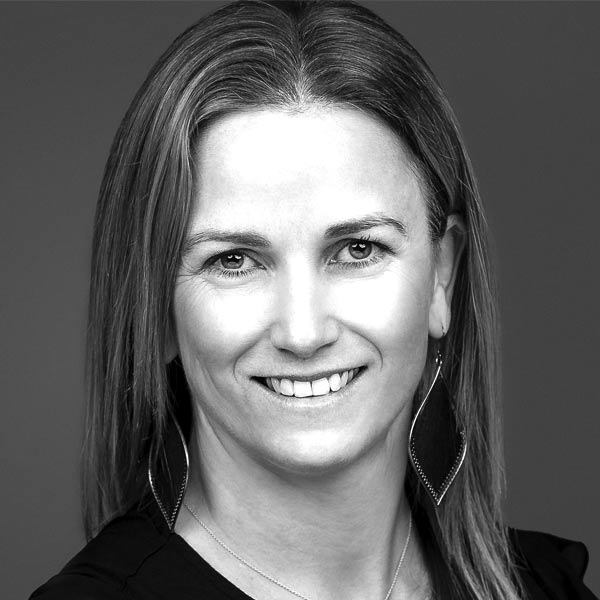
Professor Michelle Colgrave
FTSE
2020 Winner
2020 Winner
Professor Michelle Colgrave leads the Food and Agricultural Proteomics teams at Edith Cowan University and CSIRO, using revolutionary technology to identify key proteins that will benefit Australia’s food and agriculture industries and improve human health.
Professor Colgrave is recognised for major breakthroughs in the analysis of gluten, which causes a dangerous auto-immune response in people with coeliac disease.
Her research has supported the development of an ultra-low gluten barley, now known as Kebari® which is used in the production of gluten-free cereals, beers and food products with all the nutritional benefits of whole grains, and are also safe to be enjoyed by coeliac sufferers.
Professor Colgrave is recognised for major breakthroughs in the analysis of gluten, which causes a dangerous auto-immune response in people with coeliac disease.
Her research has supported the development of an ultra-low gluten barley, now known as Kebari® which is used in the production of gluten-free cereals, beers and food products with all the nutritional benefits of whole grains, and are also safe to be enjoyed by coeliac sufferers.
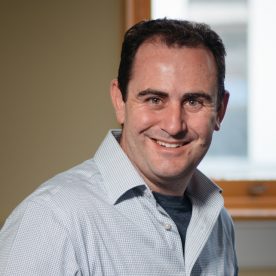
Dr Greg Falzon
2020 Winner
2020 Winner
Dr Greg Falzon is recognised for advancing AI in Agriculture.
He’s researched, developed and applied artificial intelligence to create a multi-billion dollar growth industry in precision agriculture systems.
Dr Falzon has developed a surveillance alert camera system to detect feral animals, created sensor networks to manage soil moisture, and written algorithms and software to facilitate drone-based monitoring of livestock.
His work is transforming agriculture, from autonomous weed-spraying robots to sensor networks to monitor and respond to crop health.
He’s researched, developed and applied artificial intelligence to create a multi-billion dollar growth industry in precision agriculture systems.
Dr Falzon has developed a surveillance alert camera system to detect feral animals, created sensor networks to manage soil moisture, and written algorithms and software to facilitate drone-based monitoring of livestock.
His work is transforming agriculture, from autonomous weed-spraying robots to sensor networks to monitor and respond to crop health.
2019
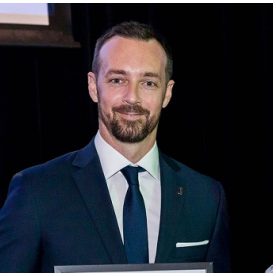
Dr Lee Hickey
2019 Winner
2019 Winner
Dr Lee Hickey of the University of Queensland leads a research team at the Queensland Alliance for Agriculture and Food Innovation that conducts plant breeding and genetics research on Australia’s most important cereal crops, wheat and barley.
He has played a key role in applying crop “speed breeding” technology that enables up to six generations per year for major crops like wheat, barley and chickpea – slashing the time to develop improved varieties for farmers.
The technology has been used to create novel wheat varieties and his communication efforts via social media and mainstream media have inspired widespread adoption around the world and helped to promote agricultural science in Australia.
He has played a key role in applying crop “speed breeding” technology that enables up to six generations per year for major crops like wheat, barley and chickpea – slashing the time to develop improved varieties for farmers.
The technology has been used to create novel wheat varieties and his communication efforts via social media and mainstream media have inspired widespread adoption around the world and helped to promote agricultural science in Australia.
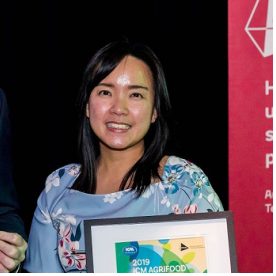
Dr Lydia Ong
2019 Winner
2019 Winner
Dr Ong, a research fellow at the ARC Dairy Innovation Hub, has developed a suite of microscopy capabilities to study the behaviour of food components such as protein and fat on a molecular scale.
She uses this expertise to determine the structure of foods and to link this fundamental behaviour to processes that occur on a large scale in Australian dairy manufacturing.
She has formed successful, long-standing research partnerships with Australian dairy manufacturing companies, which together contribute $3 billion of agricultural export income.
Her research has helped to improve product quality, minimise waste and increase the profitability of food exports.
She uses this expertise to determine the structure of foods and to link this fundamental behaviour to processes that occur on a large scale in Australian dairy manufacturing.
She has formed successful, long-standing research partnerships with Australian dairy manufacturing companies, which together contribute $3 billion of agricultural export income.
Her research has helped to improve product quality, minimise waste and increase the profitability of food exports.
2018
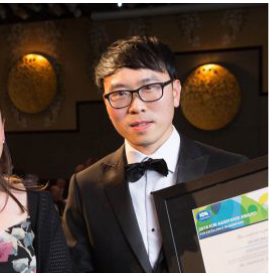
Dr Shu Kee Lam
2018 Winner
2018 Winner
Higher levels of atmospheric carbon dioxide are impacting Australia’s agriculture and food security. Dr Shu Kee Lam, a Research Fellow at the School of Agriculture and Food at the University of Melbourne, is tackling this issue from the perspective of soil nitrogen management.
His research is providing critical knowledge for the uncertain future of agriculture in a changing climate.
His recent paper in Global Change Biology was chosen by the European Commission (Environment) to inform 20,000 policy-makers on developing nitrogen use policy in agriculture.
His research is providing critical knowledge for the uncertain future of agriculture in a changing climate.
His recent paper in Global Change Biology was chosen by the European Commission (Environment) to inform 20,000 policy-makers on developing nitrogen use policy in agriculture.
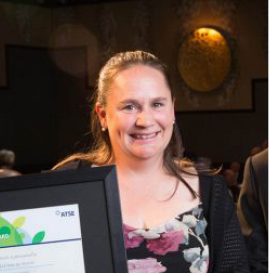
Dr Angela Van de Wouw
2018 Winner
2018 Winner
Dr Angela Van de Wouw, a Senior Research Fellow at the University of Melbourne’s School of Biosciences, is an internationally recognised leading expert on the canola disease, blackleg. Caused by a fungus, blackleg almost wiped out the industry in the early 1970s.
She discovered new ways to control the devastating disease, including identifying blackleg-resistant genes in canola, creating molecular tests to predict disease outbreaks and developing disease management strategies.
Her research helped reopen the Chinese market to Australian canola imports in 2013.
She discovered new ways to control the devastating disease, including identifying blackleg-resistant genes in canola, creating molecular tests to predict disease outbreaks and developing disease management strategies.
Her research helped reopen the Chinese market to Australian canola imports in 2013.
2017
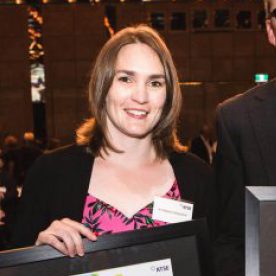
Dr Rebecca Darbyshire
2017 Winner
2017 Winner
One of Dr Rebecca Darbyshire’s major contributions to Australia’s agriculture sector has been to introduce innovative ways to make complex scientific results more readable and accessible for on-the-ground application. Often, adaptation techniques aren’t applied because of poor understanding.
She has also boosted the knowledge on how fruit trees respond to a range of weather conditions, focusing on winter chill and extreme heat damage, as well as flowering cycles.
She has also boosted the knowledge on how fruit trees respond to a range of weather conditions, focusing on winter chill and extreme heat damage, as well as flowering cycles.
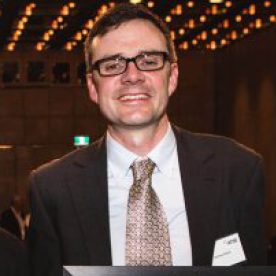
Dr James Hunt
2017 Winner
2017 Winner
Dr James Hunt has dedicated his research to supporting grain growers across the Australian wheat belt to improve the productivity and profit of grain-based farms.
Since 2012, he has improved summer fallow management across southern and western grain regions of Australia; helped properly define optimal flowering and sowing dates in different Australian environments; and developed the “fast winter” wheat cultivar.
Since 2012, he has improved summer fallow management across southern and western grain regions of Australia; helped properly define optimal flowering and sowing dates in different Australian environments; and developed the “fast winter” wheat cultivar.







